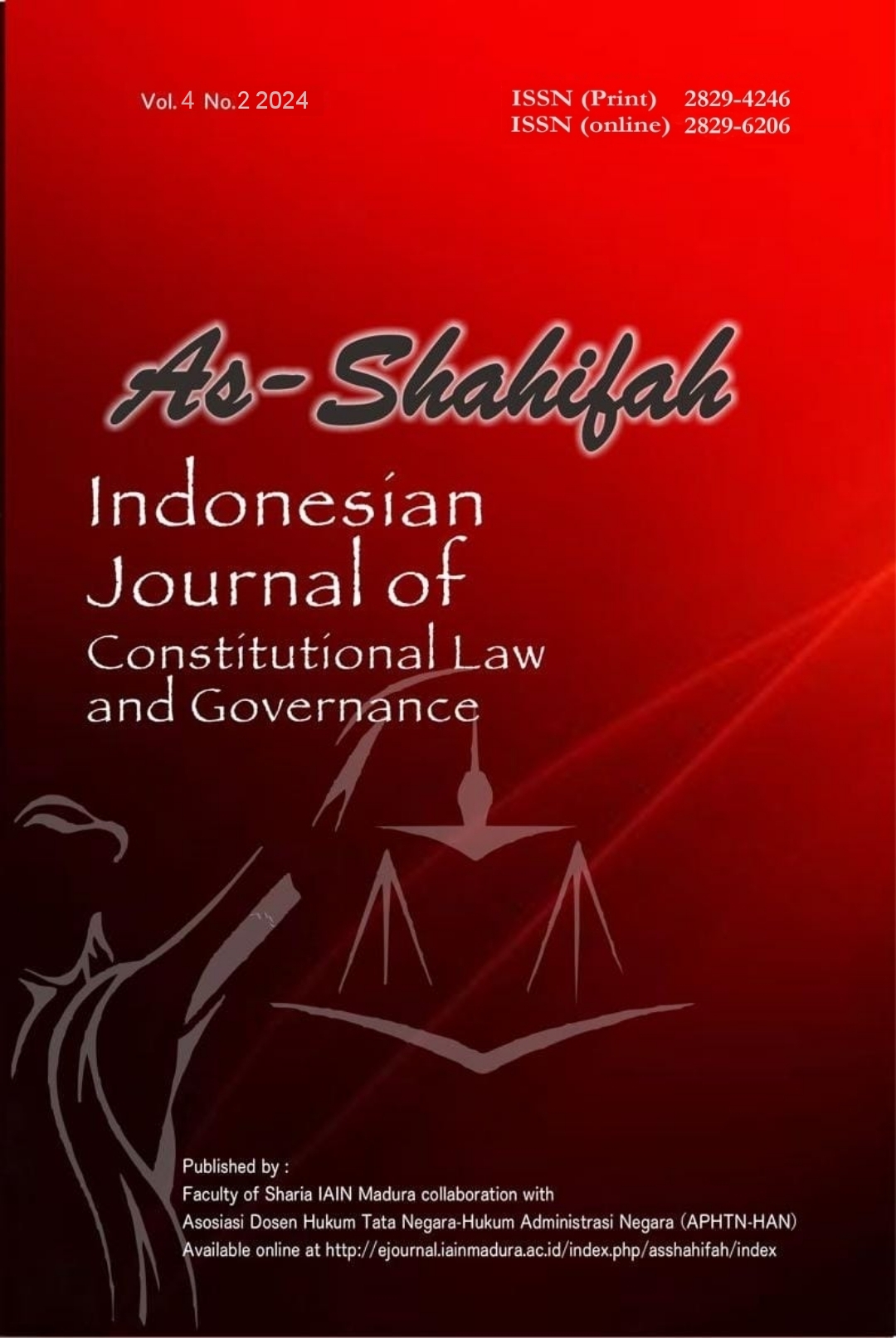Inheritance Of Children Through The Cloning Process The Perspective Of Civil Law
 Abstrak views: 13
,
Abstrak views: 13
,
 PDF (English) downloads: 6
PDF (English) downloads: 6
Abstrak
Cloning in Positive law in Indonesia has not received a response from the lawmakers, perhaps because it is considered still not feasible in Indonesia. Even though if this embryo cloning process occurs, it can disrupt the existing legal order in Indonesia, such as the Marriage Law, Inheritance Law and others. The research method used is a qualitative research method that produces descriptive data in the form of writing from the observed research object. The type of research in this study is using library research, namely through a method that collects data by understanding and studying theories from various literature related to the object of research. The results show that cloning is a method of procreation without going through the asexual process, so it can be said to have similarities with attempts to conceive outside of natural means. This is the same as stated in Government Regulation No. 61 of 2014 concerning reproductive health contained in Article 40 verse (1) that assisted reproduction or pregnancy outside of natural means can only be carried out in married couples who are bound by a legal marriage and experience infertility to obtain offspring, Then verse (2) explains that it is carried out by using the results of fertilization of sperm and ovum originating from the husband and wife concerned and implanted in the womb of the wife from which the ovum originated. In addition, it is also stated that in carrying out assisted reproduction or pregnancy outside the natural way, it must be carried out in accordance with the development of science and technology.
##plugins.generic.usageStats.downloads##
Referensi
Depri Liber Sonata, “Metode Penelitian Hukum Normatif dan Empiris: Karakteristik Khas Dari Metode Meneliti Hukum”, Jurnal Ilmu Hukum 8 (2014), 15-35.
Dewajati, Candra Nila. 202 Tanya Jawab Fiqh Wanita. Jakarta: Al-Maghfiroh, 2014.
Kementerian Agama. Al-Qur’an & Terjemahannya. Jakarta: Jabal, 2010.
Maimun, “Hak Waris Bagi Anak Hasil Kloning Perspektif Hukum Islam”, Jurnal At-Tafkir 11 (2018), 67-84.
Maimun. Hukum Waris Perspektif Islam dan Adat. Pamekasan: Duta Media, 2018.
Miza Nina Adlini dkk, “Metode Peneitian Kualitatif Studi Pustaka”, Edumaspul, Vol 6 No 1 (Maret, 2022), 973-980.
Moleong, Lexy J. Metodologi Penelitian Kualitatif. Bandung: PT Remaja Rosdakarya, 2017.
Muhibbin, Moh dan Abdul Wahid. Hukum Kewarisan Islam Sebagai Pembaruan Hukum Positif di Indonesia. Jakarta: Sinar Grafika, 2009.
Nawawi, Maimun. Pengantar Hukum Kewarisan Islam. Surabaya: Pustaka Radja, 2016.
Peraturan Pemerintah No. 61 Tahun 2014 tentang kesehatan reproduksi Pasal 40
Pupu Saeful Rahmat, “Penelitian Kualitatif”, Jurnal Equilibrium 5 ( 2009)
Septikasari, Majestika dan Dwi Maryanti. Kesehatan Reproduksi. Yogyakarta: Nuha Media, 2009.
Suryo Sitogenetika. Yogyakarta: Gajah Mada University Press, 1995.
Undang-undang Nomor 36 tahun 2009 Pasal 127.
##submission.copyrightStatement##
##submission.license.cc.by-sa4.footer##Publishing your paper with As-Shahifah : Journal of Constitutional Law and Governance means that the author or authors retain the copyright in the paper. As-Shahifah granted an exclusive non commercial reuse license by the author(s), but the author(s) are able to put the paper onto a website, distribute it to colleagues, give it to students, use it in your thesis etc, so long as the use is not directed at commercial advantage or toward private monetary gain. The author(s) can reuse the figures and tables and other information contained in their paper published by As-Shahifah in future papers or work without having to ask anyone for permission, provided that the figures, tables or other information that is included in the new paper or work properly references the published paper as the source of the figures, tables or other information, and the new paper or work is not direct at private monetary gain or commercial advantage.
As-Shahifah journal provides immediate open access to its content on the principle that making research freely available to the public supports a greater global exchange of knowledge. This journal is licensed under a Creative Commons Attribution-ShareAlike 4.0.This license lets others remix, tweak, and build upon your work non-commercially, and although their new works must also acknowledge & be non-commercial, they don’t have to license their derivative works on the same terms.
As-Shahifah journal Open Access articles are distributed under this Creative Commons Attribution-ShareAlike 4.0 International License (CC BY-SA). Articles can be read and shared for noncommercial purposes under the following conditions:
- BY: Attribution must be given to the original source (Attribution)
- SA: If you remix, transform, or build upon the material, you must distribute your contributions under the same license as the original.









